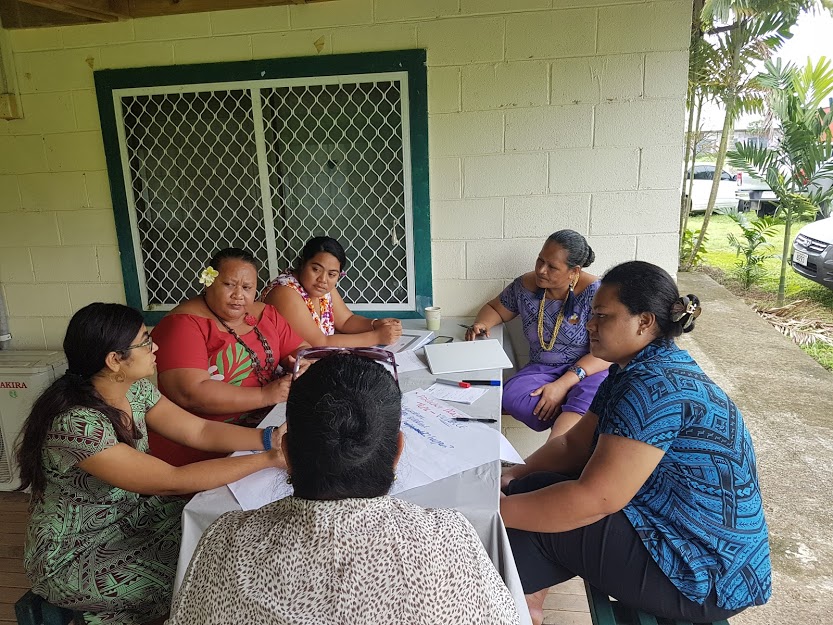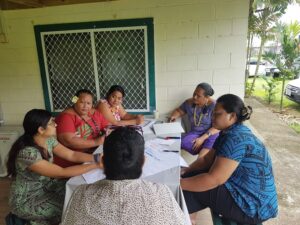Accountability mechanism of the VNR process a concern fo Samoa CSOs.

Samoa Civil Society Organisations welcome its Government’s second round of Voluntary National Review (VNR) 2020, however concerns were raised on the accountability mechanism of the VNR processes, of the vague mitigation traction of challenges and gaps identified from the first VNR 2016.
Specifically on the note that basic needs poverty and unemployment rate are on the rise. This called for a constructive partnership with Civil Society Organisations in all the stages from design, allocation of budgets, implementation and monitoring of impacts of SDGs reflected in national systems, and the relevancy of ongoing capacity building to achieve improved quality of life for All. Some good practices of Samoa Government’s engagement with the Disability sector is noted. (which are?)

For the achievements and realisations of SDGs making a positive impact and leaving no one behind, the fundamental rights of access for Samoa’s indigenous people to their customary lands should be protected by the Constitution and should not be compromised by commercial and economic interests. The Samoa Government’s emphasis on single title land registration destroys the Fa’a Samoa concept of community and collective ownership that breaches constitutional and human rights of indigenous Samoans.
Access to quality education and training is the foundation of progress for Samoa and while reporting positive levels of progress in primary and secondary school, at the very least 10% of persons with disabilities have never been to school, so greater participation of the disability sector must be guaranteed with meaningful educational outcomes and accessible learning resources.
An urgent need is to prioritize deeper and more ‘grassroots’ engagement to reflect socio-economic rural developments. Access to basic infrastructure such as roads, water, waste management, electricity; village law and order; and health/ social services in rural areas are crucial to improve employment in the primary sector that serves about 50% of the population. Social services aviolence against women, youth suicide, increased crime and waste management needs to be addressed.
There is an urgent need for local agricultural intervention for small growers and support the development of small locally owned businesses and revert the current foreign aid and government efforts towards few large and more developed farms. Increase local sustainable market access by creating more market outlets to counter medium to large farms competing with smallholder farms in crowded town located local markets.
Although Samoa is COVID19 free, it has exposed the lack of qualified adequate services and facilities for mental health. The impact on the tourism sector highlighted the shift to the primary industry of agriculture and fisheries.
Sustainable agriculture through organic farming practises should be reinforced to influence behaviour change for healthier local diet of local food and to address the issues of soil contamination from increased use of chemicals, deforestation by mono-crop farming that destroyed vital biodiversity eco-systems.
For the achievements and realisations of SDGs making a positive impact and leaving no one behind, the fundamental rights of access for Samoa’s indigenous people to their customary lands should be protected by the Constitution and should not be compromised by commercial and economic interests. The Samoa Government’s emphasis on single title land registration destroys the Fa’a Samoa concept of community and collective ownership that breaches constitutional and human rights of indigenous Samoans.
Access to quality education and training is the foundation of progress for Samoa and while reporting positive levels of progress in primary and secondary school, at the very least 10% of persons with disabilities have never been to school, so greater participation of the disability sector must be guaranteed with meaningful educational outcomes and accessible learning resources.
Although Samoa is COVID19 free, it has exposed the lack of qualified adequate services and facilities for mental health. The impact on the tourism sector highlighted the shift to the primary industry of agriculture and fisheries.
Sustainable agriculture through organic farming practises should be reinforced to influence behaviour change for healthier local diet of local food and to address the issues of soil contamination from increased use of chemicals, deforestation by mono-crop farming that destroyed vital biodiversity eco-systems.
Persistent and high-priority efforts are needed towards an accountable Government that reinforces anti-corruption laws and regulations. Collection and analysis of disaggregated data on gender and disability in particular is a way forward towards an effective and well informed society
